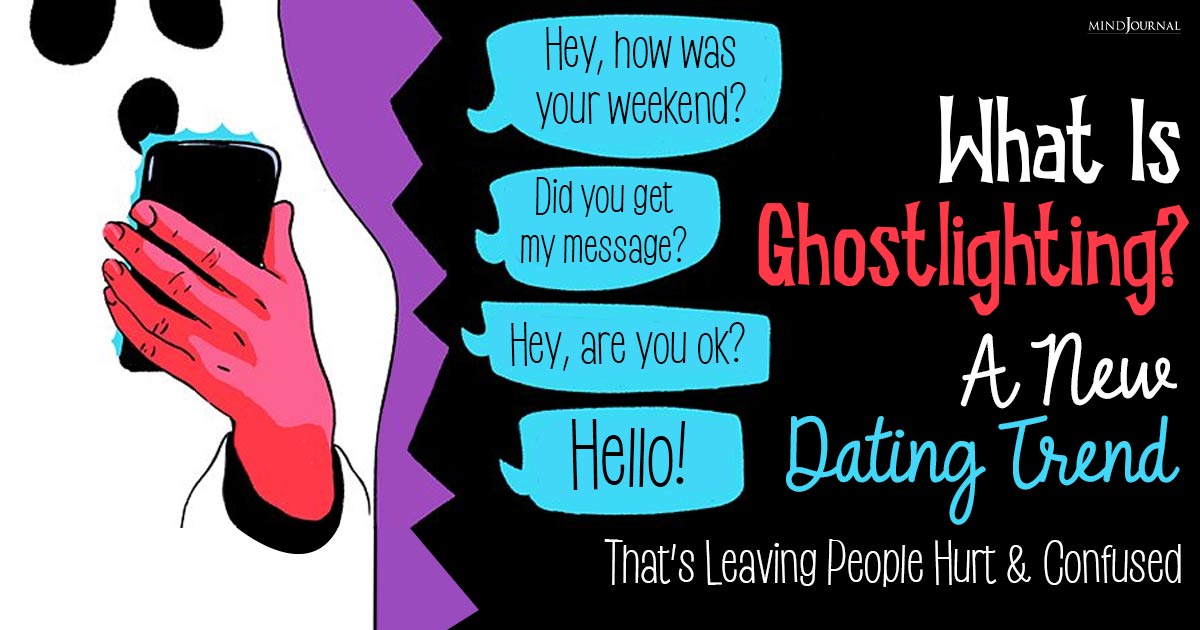Ever heard of ghostlighting? It’s a nasty dating trend that’s causing trust issues. First, they ghost you, then they return to gaslight you about why they did it. Read on to know more!
Dating apps are causing trust concerns with the rise of an unsettling trend. It’s a toxic combination of gaslighting and ghosting, leaving people feeling disheartened, and unsure, whilst creating a nightmarish experience.
Read more here: Beyond Friendship: Queerplatonic Relationships – 6 Signs You Might Be in One!
What is Ghostlighting?
You might be familiar with ghosting and gaslighting in the dating world, but have you heard of “ghostlighting”? It’s a toxic combination of these two unfortunate phenomena.
First, there’s ghosting, where someone suddenly vanishes without a word. Then, there’s gaslighting, a form of emotional abuse aimed at making you question your sanity and trust in yourself.
In the case of ghostlighting meaning, the person either cuts off communication completely or creates distance, leaving you feeling confused. And when you seek clarity, they’ll try to make you doubt your own reality. It’s a manipulative tactic that can leave you feeling like you’re going crazy.
There can be several reasons why someone who ghosted someone else decides to resurface. In many cases, ghosting is a result of the person’s own insecurities, leading them to seek control over their relationships, be it casual or intimate.
They then reappear and deflect blame onto the other person, using gaslighting techniques to justify their own unstable behavior.
Read more here: Cookie Jarring, The Latest Dating Trend: 8 Signs You Are A Victim
How To Spot A Ghostlighter?
- Disappears without explanation (ghosting).
- Reappears after a period of silence.
- Creates distance in communication or routine.
- Avoids giving clear answers or explanations.
- Tries to make you doubt your feelings or reality (gaslighting).
- Shows signs of manipulation and control.
- May be jealous or resentful of your successes.
- Prioritize your well-being and set boundaries.
Dr. Carolyn Rubenstein, a licensed psychologist based in Florida, explains that in these instances, the person returns without taking any ownership for their ghosting actions, and instead, they gaslight the individual, causing insecurity and doubt within them. It’s a deeply manipulative and alarming level of behavior to witness.
Another motivation behind ghostlighting might be jealousy. Seeing the person they ghosted doing well and thriving without them in their social media posts – be it TikToks or Instagram.
It might lead them to regret their decision and want to dampen the other person’s happiness. It’s a misguided attempt to assert control even when it’s clearly not in their best interest.
Given that gaslighters are adept at twisting the truth, it can be incredibly challenging for the victim to receive an honest response or closure. In such situations, it’s important for the affected individuals to protect themselves by distancing themselves from the gaslighter and closing that door firmly.
10 Ways To Recover and Move On Ghostlighting Abuse
- Reappearance after ghosting might feel exciting, but beware.
- Don’t be fooled by their return; it doesn’t always mean they care.
- Watch out for negative or controlling comments upon their comeback.
- Prioritize your mental health and energy over entertaining them.
- Avoid heartbreak and abusive situations by setting boundaries.
- Their return doesn’t necessarily mean they genuinely value you.
- Be cautious of gaslighting or manipulation attempts.
- Don’t let their reappearance cloud your judgment.
- Remember, giving second chances should never compromise your well-being.
- Stay true to yourself and protect your emotional health.
To wrap it up, knowing the signs of a ghostlighter is key in today’s dating world. Spotting ghosting, gaslighting, and manipulation helps protect your mental health.
Read more here: 7 Reasons Why Even Close Friends Might Ghost Us
Stick to your instincts, set boundaries, and avoid toxic vibes. Opt for relationships built on respect, honesty, and genuine connection. You’ve got this!










Leave a Reply